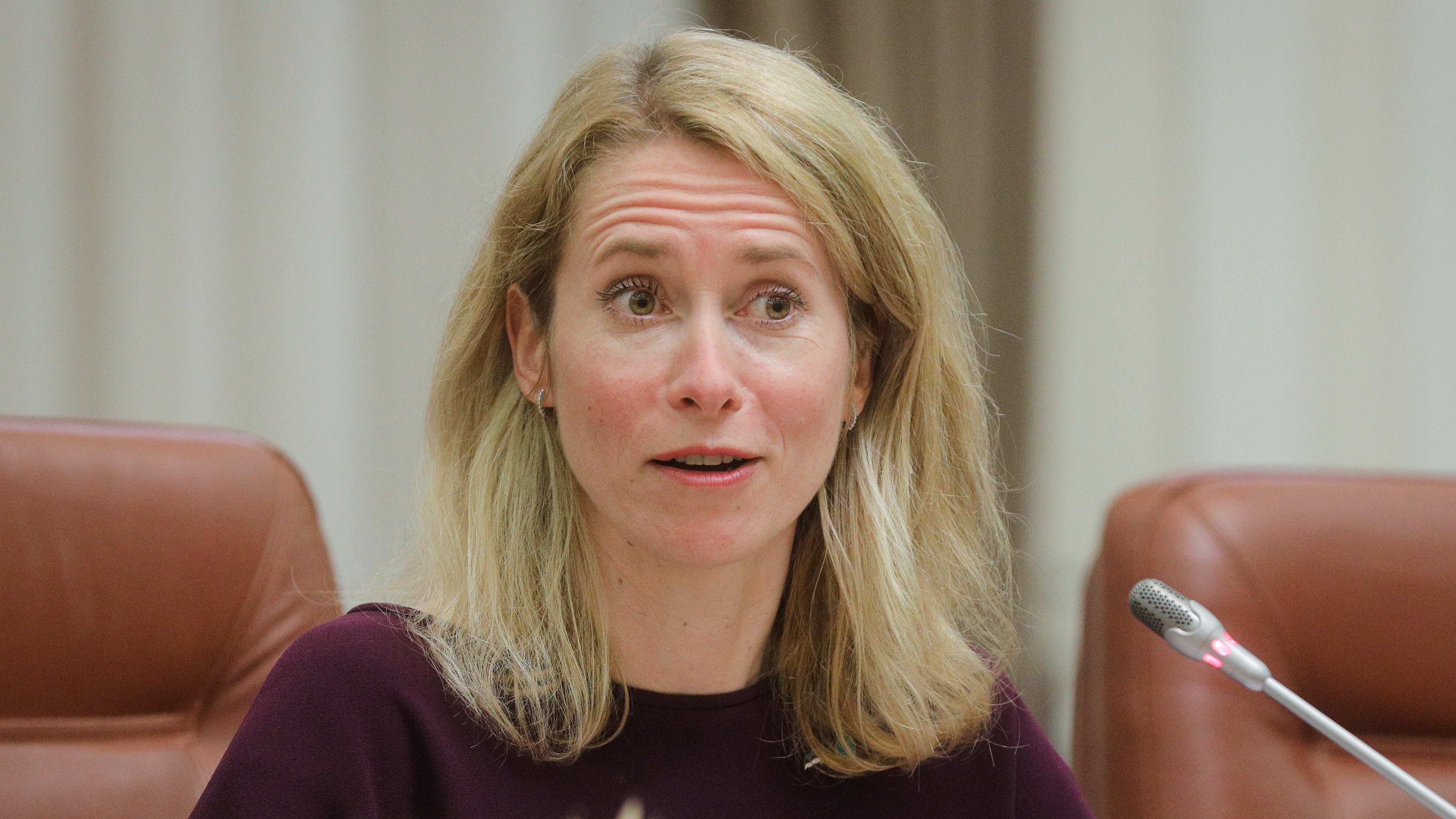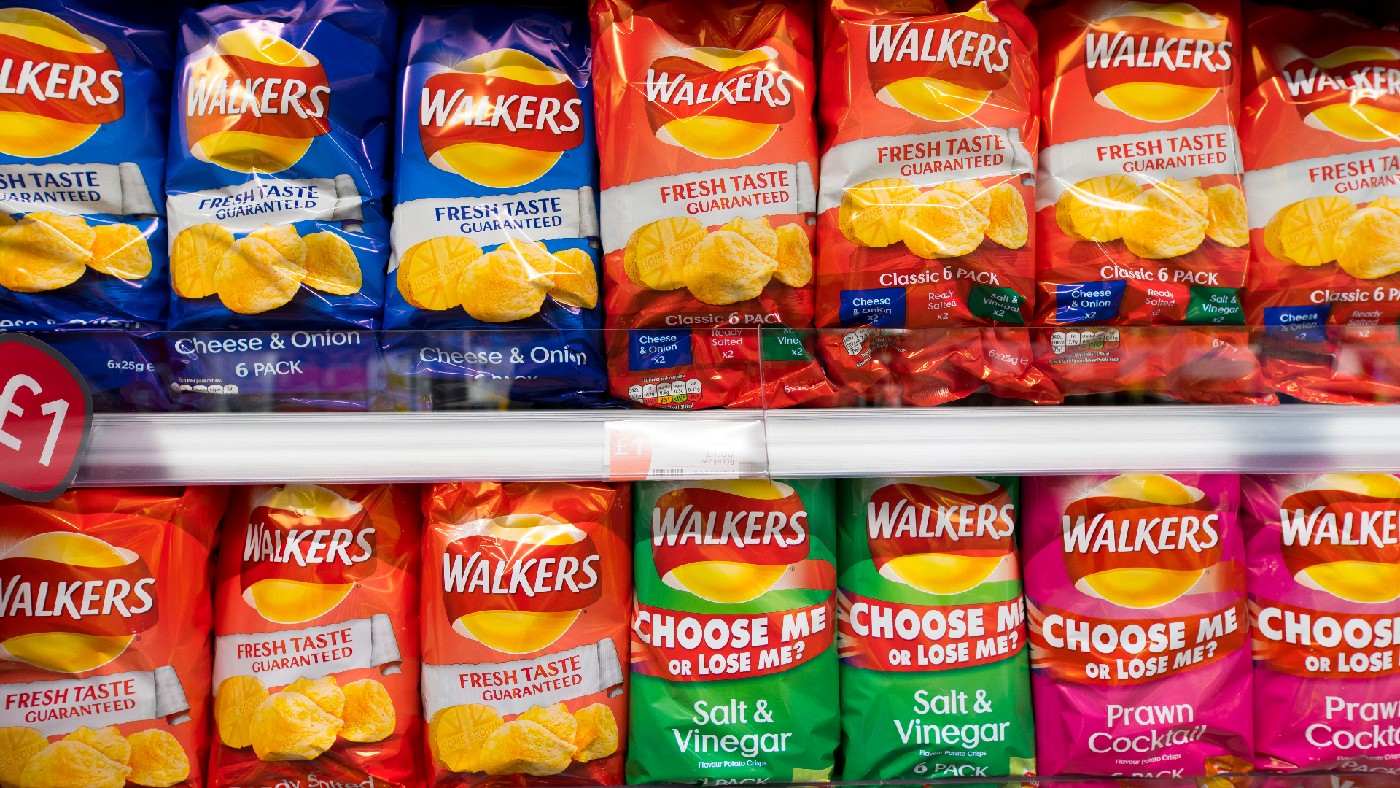Tata Steel strikes £550m deal to solve pensions riddle
Agreement will clear path for company to merge UK assets with ThyssenKrupp of Germany

A free daily email with the biggest news stories of the day – and the best features from TheWeek.com
You are now subscribed
Your newsletter sign-up was successful
Hopes rise for Tata Steel rescue deal despite pension doubts
12 August
Hopes have risen that Tata Steel UK and its 11,000 workforce will be rescued despite doubts over a controversial plan to restructure its pension scheme.
Last month, Tata's Indian parent company announced it was no longer seeking a sale of the UK assets it put on the block in March. Instead, the company intends to include the operations in its long-standing plans to merge its wider European business with German steel group ThyssenKrupp.
The Week
Escape your echo chamber. Get the facts behind the news, plus analysis from multiple perspectives.

Sign up for The Week's Free Newsletters
From our morning news briefing to a weekly Good News Newsletter, get the best of The Week delivered directly to your inbox.
From our morning news briefing to a weekly Good News Newsletter, get the best of The Week delivered directly to your inbox.
The Guardian says the revised plan depends on the government's previous pledge to give hundreds of millions of pounds to the company's UK operation in investments and loans.
A source has indicated that the financial package is still on the table and that the "sentiment is the same", adds the paper.
However, the deal also hinges on finding a solution to the £15bn British Steel pension scheme underwritten by Tata, which is thought to be at least £700m in the red.
One plan, backed by the former business secretary, Sajid Javid, is for the fund to be hived off into a new company with future accruals linked to a lower level of inflation. This has proved controversial as experts say it would drive "a coach and horses" through existing legislation.
A free daily email with the biggest news stories of the day – and the best features from TheWeek.com
It is now "understood" that the new Business Secretary, Greg Clark, has not given the proposal his backing and it is therefore no longer an option.
Trustees of the scheme told the Guardian it "would not be realistic" for the Tata/ThyssenKrupp joint venture - or any other bidder, for that matter - to take on the burden. This raises the prospect of pension liabilities bringing down the company.
They are confident, however, that a solution can be found and the scheme can be sustained outside the Pension Protection Fund, ensuring that payouts are better protected.
Clark has visited Tata bosses in India and talks are ongoing with the Pension Regulator. The mood is optimistic, although discussions are expected to drag on into the fourth quarter.
It is unclear how a revised pension scheme restructure would work, but the Guardian hints at Tata "pumping money into it in return for a change in workers' benefits" including potentially "limiting future increases in pension payments to the minimum required by law".
Overall, the pressure appears to have abated thanks to a turnaround in steel prices in March, when Tata's UK arm was losing £1m a day. The Brexit vote has also helped, as the pound's plunge has made steel exports more attractive and Chinese imports more expensive.
Greg Clark seeks to assure Tata Steel on rescue package
21 July
In one of his first engagements since becoming business secretary, Greg Clark has visited the under-threat Port Talbot blast furnace to meet Tata Steel bosses and unions.
Such an early visit sends a signal of the reshaped government's desire to press on with plans to protect primary steelmaking in the UK. The Guardian reports Clark took the opportunity to restate that the crisis remains a "priority" for his new, bigger business department.
Roy Rickhuss, the general secretary of steelworkers union Community, said: "The new secretary of state clearly understands the scale of the challenge still facing the industry, but his words to steelworkers today must be followed by firm actions to help save their jobs."
A spokesman for Tata Steel said: "We look forward to working urgently with the new secretary of state, alongside other stakeholders, to develop the best outcome for our UK business and its employees, as well as others including members of the British Steel pension scheme."
Tata's mention of the pension scheme arguably shows the key, contentious issue facing Clark. The government has already repledged hundreds of millions of pounds in commercial loans to the firm -and vowed to develop an "industrial strategy" that will cover issues such as energy costs.
But one of the major blockers to Tata's revised plan to retain its UK assets through a merger with German group ThyssenKrupp is the £14bn British Steel pension scheme, which is at least £700m in deficit and represents a huge ongoing financial liability.
A consultation on controversial plans to restructure the fund and reduce inflation increases closed in June, but the government changes mean there has as yet been no official response. The proposals are opposed by, among others, the Pension Protection Fund.
Finding some kind of solution could be the make-or-break issue to protect 11,000 direct jobs at Tata and potentially tens of thousands of others across its supply chain and wider industry.
There have already been job losses related to the uncertainty surrounding Tata Steel. Port Talbot's Fairwood Fabrications, an engineering firm with strong links to the steel sector, is to be liquidated with the loss of 250 jobs, reports the South Wales Evening Post.
Chairman Gherold Davies said the financial problems were related to the troubles in the steel industry.
Tata Steel pushes for speedy sale of units
13 July
Tata Steel UK is pressing ahead with plans to spin out its speciality division, which makes products for the aerospace industry, despite abandoning the sale of its broader British business.
The Indian-owned company is pushing for a speedy sale and has invited bids for the unit by this Friday, says Sky News.
The speciality division is the third-largest producer in its corner of the steel sector, with a client list including Airbus, Boeing and Rolls-Royce. It employs 2,000 people across plants in Rotherham and Stocksbridge, as well as service centres in Bolton, Xian in China and Nagpur in India.
According to documents sent to bidders, the arm made a pre-tax loss of £81.4m in the year to March 2016, but is expected to swing into a £33m profit within three years.
It is not the only part of the UK business being split and sold separately, Sky News claims. Tata is also said to be seeking a buyer for its pipeline tube business, which supplies steel products to the oil and gas industry and has a workforce numbering several hundred people.
Tata said in March it would sell its UK arm, which now employs 11,000 people since the sale of its Scunthorpe steelworks earlier this year.
The company initially said it would only consider bids for the whole of the business but as the process became mired in delays, rumours circulated that some standalone units might be sold independently.
The sale of its UK assets was cancelled altogether last week, amid merger talks with German rival ThyssenKrupp. It is believed an increase in global steel prices has returned the UK arm, which was losing about £1m a day, to profit.
Questions remain over pledges made by the government to support the business, specifically its proposals to reform Tata's £14bn British Steel pension scheme by reducing the rate of inflation increases.
Politicians have bemoaned the ongoing uncertainty surrounding Tata, which poses a threat to tens of thousands of jobs across a range of sectors.
This week, Welsh Assembly member Bethan Jenkins said two suppliers to Tata Steel have "gone into administration in recent weeks through being owed money by the steelmaker", reports the South Wales Evening Post.
"Contractors and suppliers are swiftly becoming the silent victims in this time of great uncertainty," she added, citing estimates that "as many as 18,000 people" work in Tata UK's supply chain.
Tata Steel holds out over future of Port Talbot plants
07 July
Tata Steel is no longer selling off its UK assets but refuses to offer guarantees on the future of Port Talbot.
The Indian-owned company confirmed on Friday that it has halted a process to separate its UK arm from its wider European operations. A sale process has been ongoing since March, but has been dogged by delays and accusations of brinkmanship.
Instead, year-long talks with German steel group ThyssenKrupp about a merger with Tata's businesses on the continent have been extended to include the UK arm, the Wall Street Journal reports.
But analysts at Deutsche Bank wrote in a client note that this change in tack makes the tie-up a "much higher risk transaction… in part because of Tata UK's high pension liabilities".
Herein lies the rub, adds The Guardian. Until Tata has thrashed out a deal with the government, it will not make promises about Port Talbot, which represents the last bastion of primary steelmaking in the UK.
"I think it is important to look at it from the prism of a competitive business rather than sitting on any firm guarantees," said executive director Koushik Chatterjee. "Volatility of the market and the risks to performance have to be mitigated by building a structurally competitive business."
He added: "It is about own internal plan being made more robust, it is about the… policy of both the Welsh government and the UK government, and then we have to get to the answer on pensions and look at a satisfactory conclusion to our engagements with the unions."
Chatterjee's focus on the pensions issue is telling. So far, the government has publicly stood by a pledge to offer up to £1bn in commercial loans to turn around Port Talbot.
But it has said nothing more about controversial reforms to the £14bn British Steel pension scheme. A consultation that proposed hiving off the scheme and cutting future inflation increases closed last month and prompted criticism from the likes of the Pension Protection Fund.
With a black hole of at least £700m and requiring hundreds of millions of pounds in top-up payments, the pension scheme remains a millstone around the business and holds back any deal.
Now it will be for new prime minister Theresa May and her team to make a call on the pension plans, which could be key to unlocking a deal to safeguard 11,000 jobs.
-
 Palestine Action and the trouble with defining terrorism
Palestine Action and the trouble with defining terrorismIn the Spotlight The issues with proscribing the group ‘became apparent as soon as the police began putting it into practice’
-
 Why is the Trump administration talking about ‘Western civilization’?
Why is the Trump administration talking about ‘Western civilization’?Talking Points Rubio says Europe, US bonded by religion and ancestry
-
 Quentin Deranque: a student’s death energizes the French far right
Quentin Deranque: a student’s death energizes the French far rightIN THE SPOTLIGHT Reactions to the violent killing of an ultraconservative activist offer a glimpse at the culture wars roiling France ahead of next year’s elections
-
 Can the UK avoid the Trump tariff bombshell?
Can the UK avoid the Trump tariff bombshell?Today's Big Question President says UK is 'way out of line' but it may still escape worst of US trade levies
-
 Five years on, can Labour's reset fix Brexit?
Five years on, can Labour's reset fix Brexit?Today's Big Question Keir Starmer's revised deal could end up a 'messy' compromise that 'fails to satisfy anyone'
-
 Why au pairs might become a thing of the past
Why au pairs might become a thing of the pastUnder The Radar Brexit and wage ruling are threatening the 'mutually beneficial arrangement'
-
 Brexit: where we are four years on
Brexit: where we are four years onThe Explainer Questions around immigration, trade and Northern Ireland remain as 'divisive as ever'
-
 Is it time for Britons to accept they are poorer?
Is it time for Britons to accept they are poorer?Today's Big Question Remark from Bank of England’s Huw Pill condemned as ‘tin-eared’
-
 Is Brexit to blame for the current financial crisis?
Is Brexit to blame for the current financial crisis?Talking Point Some economists say leaving the EU is behind Britain’s worsening finances but others question the data
-
 How Brexit handed a ‘financial boon’ to former Soviet state Estonia
How Brexit handed a ‘financial boon’ to former Soviet state EstoniaIn Depth Around 4,000 companies have set up shop in member state since UK left EU, prime minister says
-
 Why the UK is suffering a Walkers crisps shortage
Why the UK is suffering a Walkers crisps shortagefeature Production issues have forced snack giant to prioritise most popular varieties